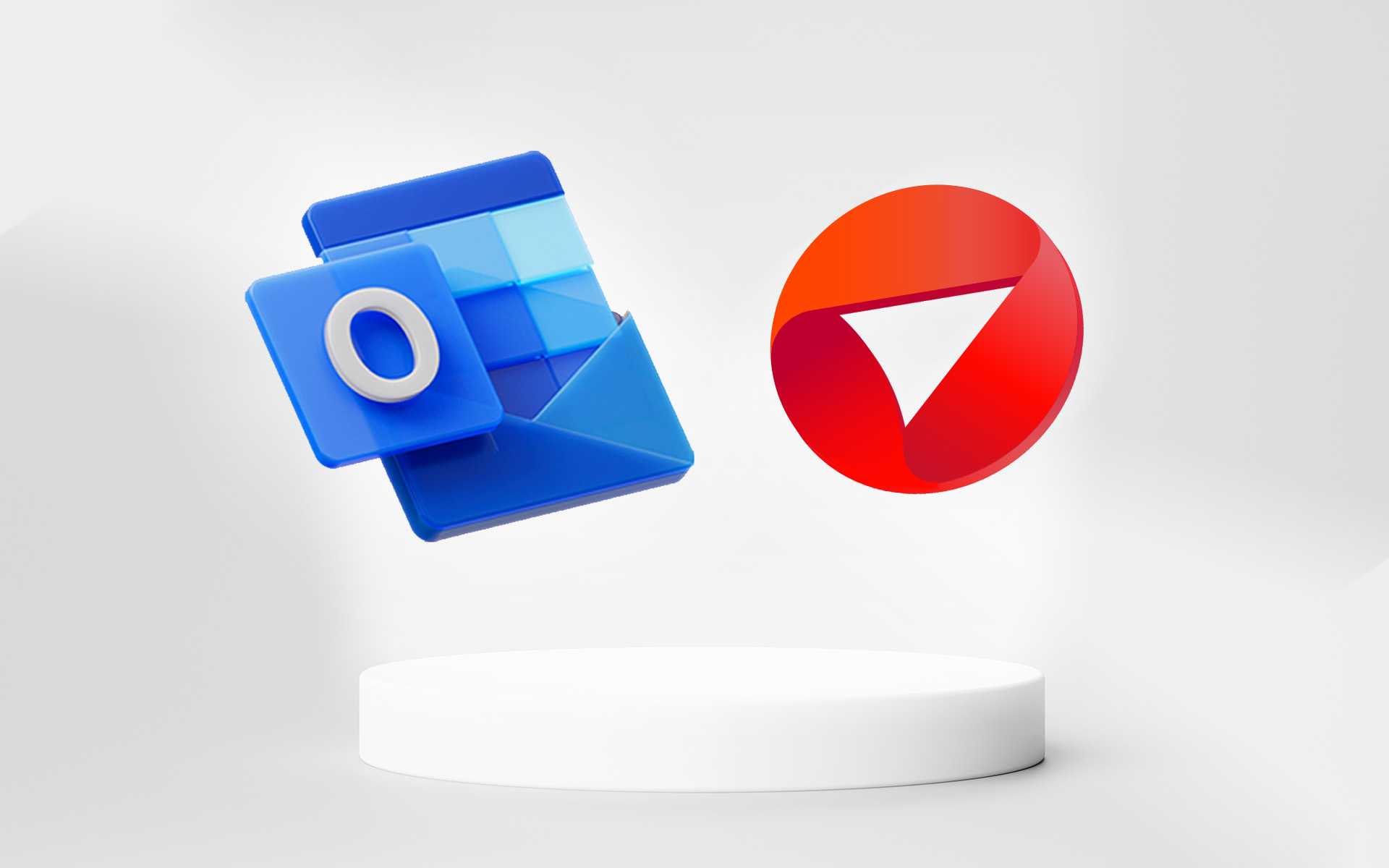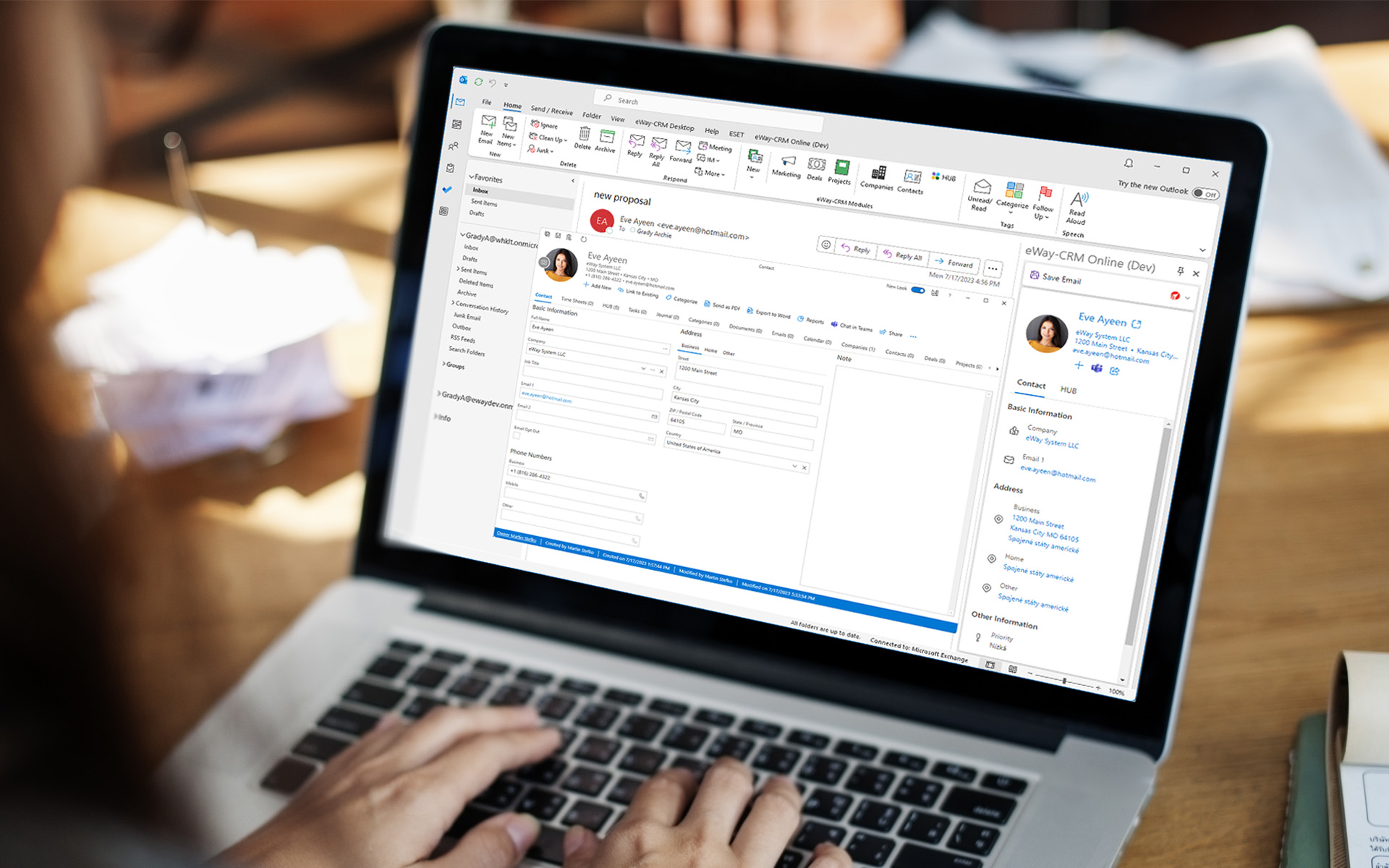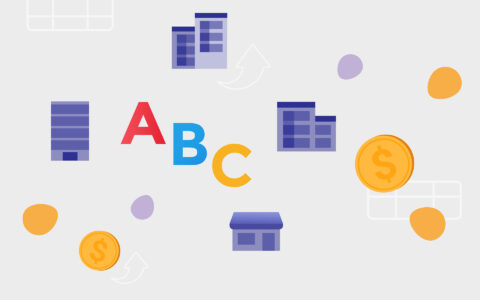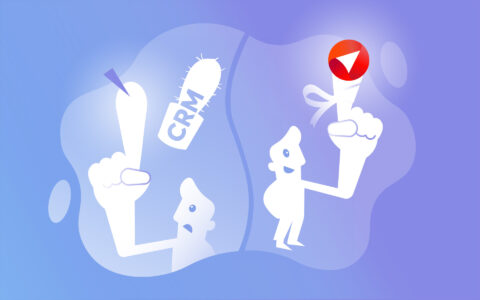Have you ever considered how combining two powerhouse tools can elevate the Food Industry? Introducing Customer Relationship Management (CRM) software specifically tailored for the food industry, and its synergy with Microsoft Outlook.

But what makes Outlook so special in this mix? And how does CRM software for the food industry stand out? Think of a platform many professionals are already familiar with, now amplified with the specialized features of a CRM.
This blend could revolutionize efficiency and customer engagement in the food realm. So, let’s now unwrap the potential of this partnership and its transformative benefits for food establishments.
Table of Contents:
The Power of CRM in the Food Industry
The CRM Experience Enhanced by Outlook
Why Microsoft Outlook Elevates CRM Software for the Food Industry
Leveraging CRM for Boosting Customer Engagement
Taking the Customer Relationship to the Next Level with eWay-CRM
Making the Best CRM Choice for the Food Industry
The Power of CRM in the Food Industry
At its core, CRM is about enhancing the relationship with customers. For the food industry, where customer loyalty and experience are paramount, a CRM is not just a tool; it's a game-changer.
Here are some of the reasons why:
- Enhanced Customer Engagement: With a CRM, restaurants and cafes can launch targeted marketing campaigns. Remember the last time you got an email for a discount on your favorite dessert? That's a CRM working its magic.
- Data-Driven Decisions: CRMs are not just about marketing; they're about smart business decisions. By analyzing customer data, restaurants can identify popular dishes, peak dining times, and even predict trends.
- Streamlining Operations: From inventory management to employee schedules, CRM software for the food industry can also play a pivotal role in ensuring smooth day-to-day operations, allowing businesses to focus more on the operations that bring in the money.
- Building Loyalty Programs: CRMs can effortlessly manage loyalty programs, offering points, cashbacks, and tailored deals. This not only rewards regular customers but also entices new patrons to visit more often.
- Feedback and Improvement: One of the greatest strengths of a CRM is its ability to gather and analyze feedback. In the food industry, where taste and preferences can be subjective, understanding what works and what doesn't is crucial.
In the next sections, we'll explore how integrating such a CRM system with Microsoft Outlook can elevate these benefits, offering an even more streamlined, user-friendly experience.
The CRM Experience Enhanced by Outlook

Microsoft Outlook is more than just an email tool; it's a comprehensive communication suite used by millions worldwide. By integrating a CRM within such a widespread platform, we are essentially streamlining two major business processes into one.
The CRM experience is enhanced through:
- The Comfort of Familiarity: The beauty of an Outlook-integrated CRM, like eWay-CRM, is its innate familiarity. Employees and management don't have to juggle between different platforms. If they've used Outlook, they're already ahead in mastering the CRM, leading to higher adoption rates.
- Syncing and Organizing: Ever thought about how beneficial it would be to have your customer interactions, be it emails or scheduled meetings, automatically synced and organized in the CRM? This is exactly what an Outlook-integrated CRM offers - a seamless connection between your emails, calendars, and customer data.
- Data Security: With the trustworthiness of Microsoft's infrastructure, integrating a CRM within Outlook ensures heightened data security, a critical aspect for businesses handling sensitive customer information.
- Collaboration Boosted: Teams can collaborate more effectively when both their communication (Outlook) and customer management (CRM) tools are in sync. Sharing insights, data, and strategies becomes far simpler.
- Consolidated Notifications: Receive CRM alerts and updates right in your Outlook. Whether it's a follow-up reminder for a customer or an update on a marketing campaign, get all your notifications in one place.
- Cost Efficiency: Especially for small to medium-sized businesses, integrating CRM with a platform they're already using (like Outlook) can be more cost-effective than investing in and training teams on a standalone CRM system.
Why Microsoft Outlook Elevates CRM Software for the Food Industry

In an industry where time is of the essence, staff in restaurants and cafes don't have hours to spend learning new software. Given many already use Outlook for bookings, supplier communications, or event planning, introducing a CRM that integrates directly feels less like a new tool and more like a helpful upgrade.
In addition, this integration provides the following:
- Syncing Bookings and Customer Data: Imagine if every reservation made via email through Outlook automatically populated your CRM with the customer's details and preferences? This can be a game-changer for personalizing the dining experience and boosting customer loyalty.
- Enhanced Team Collaboration: A cafe might have a marketing team running email promotions, waitstaff noting down regular customers' preferences, and managers overseeing supply orders. An integrated CRM in Outlook ensures all teams are on the same page, making cross-functional tasks, like launching a new seasonal menu, smoother.
- Unified Notifications: For a restaurant manager, getting a CRM reminder about a VIP customer's visit or a supplier's order update directly in Outlook can make multitasking more manageable and efficient.
- Cost-Effective Solution for Food SMEs: Small to medium-sized food enterprises often operate on tight budgets. By integrating CRM with a platform they already utilize (like Outlook), they can optimize operations without the financial strain of an entirely new system.
Next, we'll explore the tangible ways this integration can boost productivity and growth in the food and beverage sector.
Leveraging CRM for Boosting Customer Engagement
Utilizing a CRM integrated with Outlook allows F&B businesses to segment their customer database efficiently.
For instance, classify them into 'frequent diners, 'event attendees,' or 'new customers.' This aids in crafting personalized email campaigns or offers, ensuring the right message reaches the right audience. Remember, a personal touch can turn a one-time diner into a regular.
Not only that, but a CRM also helps achieve the following:
- Managing Feedback and Preferences: The food industry thrives on feedback. With the CRM's ability to link emails to customer contacts, restaurants can swiftly act on feedback received through emails. If a customer mentions a favorite dish or a dietary preference in an email, it can be promptly added to their CRM profile. This invaluable info can then be used to enhance their next dining experience.
- Synchronized Calendars for Event Planning: Many restaurants host events, wine tastings, or theme nights. With the CRM-Outlook integration, marketing teams can seamlessly sync event dates with promotional email campaigns, ensuring no opportunity is missed.
- Streamlined Supplier Communication: Beyond customer management, the F&B sector frequently communicates with suppliers. Having vendor contacts and communication history stored in a unified CRM-Outlook system ensures timely order placements, renegotiations, and conflict resolutions.
- Targeted Email Marketing Campaigns: Leverage the built-in email marketing tool of the CRM to send out newsletters featuring new menu additions, special offers, or loyalty rewards. With the CRM's analytical prowess, gauge which campaigns resonate the most with your audience.
- Loyalty Program Management: By maintaining a consolidated view of customer interactions, from emails to reservations, eateries can better manage loyalty programs. Think of automated birthday discount emails or exclusive offers for those who frequently engage with your restaurant's newsletters.
- Swift Responses Boost Satisfaction: Instantaneous email notifications through Outlook, thanks to CRM integration, allow eateries to promptly address reservations, cancellations, or queries. A quick response time, especially in the digital age, enhances the overall customer experience.
Taking the Customer Relationship to the Next Level with eWay-CRM

eWay-CRM presents a robust solution for food businesses looking for an Outlook-integrated CRM to handle these important business functions. Here is how:
- Deal Tracking for Catering and Events: With eWay-CRM, food industry professionals can utilize the sales module to track large deals, especially beneficial for businesses into catering or hosting large events. By integrating this with Outlook, they can set reminders for follow-ups, send out proposals, and manage client expectations more effectively.
- Project Management for Menu Revamps and Launches: Launching a new menu or renovating your restaurant? Use the project management module in your CRM to stay on top of tasks, deadlines, and communication with stakeholders. Outlook's calendar can remind you of critical milestones, ensuring nothing falls through the cracks.
- Mobile Accessibility for On-the-Go Management: In the bustling environment of the food industry, managers are often on the move. With eWay-CRM available on iOS and Android, they can access customer data, check reservation emails, or update project statuses straight from their phones, ensuring uninterrupted operations.
- Data Analytics for Tailored Offerings: Dive deep into CRM data to understand customer preferences and sales patterns. For instance, if a particular dish gets consistently high sales after an email promotion, it might be a sign to feature it more prominently or offer it in a combo deal.
- Built-in Email Marketing for Promotions: Instead of juggling between multiple tools, utilize the eWay-CRMs integrated email marketing feature. Craft enticing promotions, happy hour deals, or event invitations and monitor their success right from the same platform.
By tapping into these advanced features, the food industry can enhance its operations, making services more streamlined, efficient, and customer-centric.
Making the Best CRM Choice for the Food Industry
The food industry thrives on exceptional service, timely communications, and understanding customer preferences. While CRM tools play an instrumental role in achieving these benchmarks, the right choice of CRM can make all the difference.
eWay-CRM stands out in this regard, offering seamless integration with Microsoft Outlook, ensuring that businesses don't need to traverse a steep learning curve. With its intuitive design, eWay-CRM becomes an extension of the familiar Outlook environment, transforming it into a robust platform for managing customers, sales, projects, and marketing campaigns.
For those in the food industry, from bustling restaurants to catering services, the convenience and efficiency that an Outlook-integrated CRM offers cannot be understated.
When the stakes are high, and every customer interaction matters, turning to a user-friendly, integrated CRM solution like eWay-CRM isn't just a smart choice—it's essential for ensuring growth, profitability, and an unparalleled customer experience.











